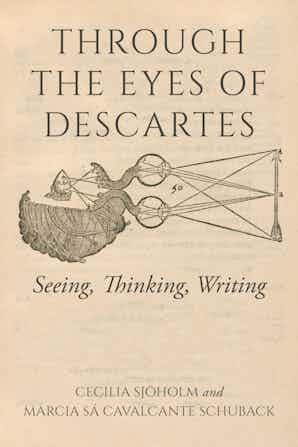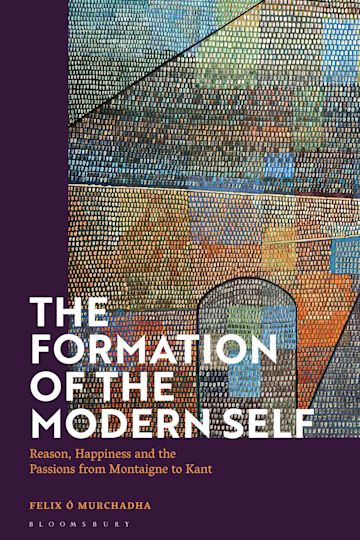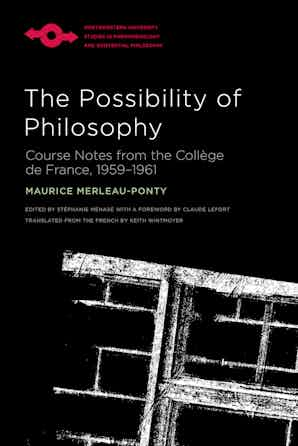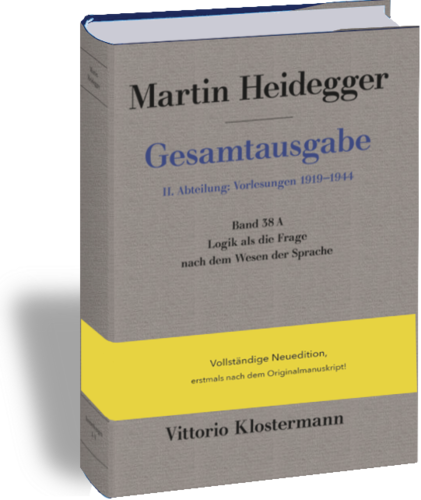 Edmund Husserl’s Cartesian Meditations: Commentary, Interpretations, Discussions
Edmund Husserl’s Cartesian Meditations: Commentary, Interpretations, Discussions
Karl Alber
2023
Hardback
521
Reviewed by: Stefano Franchini (University of Pisa)
The importance of the volume Edmund Husserl’s Cartesian Meditations. Commentary, Interpretation, Discussions can be found in its aim: providing a study of the Cartesian Meditations (henceforth CM) in its entirety. Against the tendency to reduce the CM to some of its parts – mostly intersubjectivity or transcendental idealism –, this Commentary attempts to offer a unified view of the text. As the editor De Santis in the Introduction recognizes, CM are not only »Husserl’s second attempt at systematizing his philosophy after the so-called »turn« to a transcendental form of thought« (p. 9) but are also the key to understanding Husserl’s late phenomenology. The editor states that the motivation of this book can be found in the necessity to seriously deal with the text in which Husserl highlights the importance of the »concrete ego«, which provides also a teleological-practical ontology. Regarding the goal of this book, it is important to notice that the three parts Commentary, Interpretation, and Discussion are bounded by each other’s, and it is possible to find some frameworks strictly related to the Commentary and also to the other sections. The development of the Commentary is completed and expanded in the following sections, Interpretation and Discussion, but these parts are not secondary to the others.
The volume is divided into three sections, as the title states. The first part, Commentary (§1-6) provides detailed analyses that stick to Husserl’s publication of the text. The latter two, Interpretation (§7-14) and Discussion (§15-20), intertwine both the commentary and the interpretation. The editor De Santis claims (p.16) that the first part can be regarded as a commentary only if we accept »commentary« in a broad sense. Starting from the CM, the authors develop reflections that go deeper than a simple reconstruction of Husserl’s passages. As is well known, one of the main problems of CM’s reception is the tendency to overlook most of the content of the text (p.12). While in Interpretation the authors emphasize how some philosophers have been dealing with CM, in Discussion the authors spotlight some core problems of Husserl’s CM and reflect on them with other frameworks of phenomenology. For this reason, Interpretation and Discussion both aim to compare CM with Husserl’s phenomenology and with Scholars’ reception of this text, as well as to investigate some of the themes of CM that are central to all Husserl’s phenomenology.
The goal of understanding CM as a whole can be found also in the internal links that can be found. Regarding this, it’s important to notice Daniele De Santis’ §4 on Fourth Meditation with Witold Płotka’s §8, Aurélien Djian’s commentary on Second Meditation with §9 written by Ignacio Quepons and §15 by Emanuela Carta and §5-6 on Fifth Meditation made by Sara Heinämaa (§5) and Alice Pugliese (§6) with Stefano Bancalari’s work on Levinas (§10) and Saulius Geniusas’ contribute on Paul Ricoeur. This allows both a mutual confrontation and a thematic deepening – although internal references are not always present in the text. But it is also possible to further interweave internal references and compare e.g. Landgrebe and Husserl on the account of the idea of Erste Philosophie – these topics are respectively discussed in §9 concerning Landgrebe’s remarks on CM and in §19 §20, specially here on Husserl’s »first« and » universal« and »second« and »last« philosophy. Thanks to the in-depth sections, it is therefore possible to compare the theoretical outcomes of the MC’s with Husserl’s latest phenomenology – e.g Andreea Smaranda Aldea in §17 claims that »Husserl’s emphatic call for a higher-order critique in the Cartesian Meditations as anticipating his Crisis call for radical self-reflection« (p. 453) and Alice Pugliese who compares the Fifth Meditation also with Husserl’s Grenzprobleme der Phänomenologie.
It is important to note that Interpretation and Discussion are not appendixes of the Commentary. Alongside a reading accompaniment, the authors shed light on issues that are often overlooked. For this reason, it seems to me that rather than exhausting the research, the importance of this volume is to be a forerunner for even more in-depth studies of MC. For example, Witold Płotka in §8 goes far beyond just a simple reconstruction of Roman Ingarden’s remarks on CM. Namely, even if these remarks »are an historical document of phenomenological movement« (p. 216), the author stresses the importance of Ingarden’s work also in respect to the Fourth Meditation and to some unjustified presuppositions. In this respect, also Danilo Manca researches in §7 the Hegelian motifs of MC which Fink highlights. Specifically, Manca focuses on the »transition from the natural to the transcendental attitude« (p.193), on the Gespaltung of the Ego after performing epochē and the thematization of unconscious dimension of constituting life which that phenomenological method makes possible. Based on Fink’s reflections and stressing Hegel’s use of »Aufheben« (p. 197), the author shows the continuity between the natural and transcendental attitude. Regarding MC, the author deals with Fink’s remarks on §32 – in which the ego in is understood as a »substrate of habitualities« and with the dialectic between the two I, the natural and the transcendental one. In a passage of Fourth Meditation, Husserl claims that his CM are for the »nascent philosopher the genuine introduction into a philosophy«[1]. The same thing does not completely fit with Edmund Husserl’s Cartesian Meditations. Commentary, Interpretation, Discussions. In some parts the content discussed by the authors presupposes a good knowledge of Husserl’s philosophy – not just of MC – and for a non-specialist reader it might be difficult. Especially §14 Meditations on Purity: Edmund Husserl and Hans Kelsen wrote by Federico Lijoi and §18 Lavigne’s Objection to Phenomenologica Idealism: Critical Remarks with the Help of the Cartesian Meditations by Agustín Serrano de Haro are only fully clear to readers that already are familiar with the phenomenological milieu and, in the second case, with Logic Investigation. For this reason, the »broad sense« of the Commentary includes discussions of problems that are not limited to the text commented on here and investigate some core problems of Husserl’s phenomenology. Nevertheless, these chapters are certainly an opportunity to explore these issues.
Certainly, the Commentary’s part offers a detailed discussion. Claudio Majolino in the first part of Commentary (§1) clarifies the meaning of »Cartesian« and »Meditations« and he researches for the Motive – both in its German meanings (p. 27) – why Husserl took Descartes as a reference. This part is longer than the other and it deals both with Husserl’ Introduction and Fist Meditation. Since the earliest reviews many criticisms emerged against Husserl’s approach towards the figure of Descartes (p. 14-6), investigating this point is a good key to start. Claudio Majolino works on Husserl’s so-called Cartesianism and understands it in terms of »repetition and variation« (.p 22). Using some insights from Hua VII / VIII and Husserliana Materialen IX Claudio Majolino stresses the threefold meaning of Descartes’ Meditation recognized by Husserl: the eternal meaning, the importance of CM for the present and finally the meaning of Descartes’ Meditations for the present. The author approaches this problem by pointing out the way Husserl had already discussed Descartes (Socrates and Plato) in his previous Lectures. Regarding this point Claudio Majolino claims that “[Descartes] embedded the skepsis within the innermost core of genuine and radical philosophy itself” (p. 35). If on the one hand, Descartes took some arguments from Skepticism, on the other, on several occasions he points out the differences between his doubt and skepticism[2]. The boundness between the grounded knowledge and responsibility, well discussed in §1, from another point of view, is also investigated by Leonard Ip (§20) using the distinction between »Second« and »Last« Philosophy in Husserl. The reference to Descartes allows Husserl to link knowledge to responsibility, but it also poses some problems: first and foremost, that of the route into phenomenology. In §16 Rosemary Jane Rizo and Patron de Lerner points that out and discusses Husserl’s Cartesian way to reduction. Starting from a discussion of Begründung and Fundierung (p. 405-10) two terms used by Husserl to describe the foundational problem, the A. than discusses the main theme regarding CM. It is important to notice that Rosemary Jane Rizo and Patron de Lerner highlight two antithetical demands in Husserl’s thoughts about science: the interest in a mathematical theoretical foundation and the interest in transcendental subjectivity, which is connected to the Lebenswelt and gives it a foundation. The focus on the Husserl-Descartes link finds another insight in §17. Here, Sergio Pérez-Gatica in his The Distinction between »First« and »Universal« Philosophy in Husserl’s Cartesian Meditations: On a Basic Precondition for the Trasformation of Philosophy into a Rigorous Science points out that while »philosophy« means »universal philosophy« – in terms of Platonic and Cartesian idea of universal science –, Husserl uses »first philosophy« in a technical way to stress the basic method for a rigorous philosophical knowledge. Considering the lack of rigor in philosophy at his time, Husserl uses the Cartesian path to draft the real goal for its phenomenology: providing a fundamental epistemology. (p. 483). In conclusion Sergio Pérez-Gatica highlights the connection between logical and ontological requirements in Husserl’s philosophy and the reflections contained in MC on the idea of rigorous grounding philosophy. Regarding Cartesian way, another insight comes from §9. Here Ignacio Quepons points out that Landgrebe stresses the same problem of the Cartesian way to reduction declared by Husserl itself in Crisis. It’s also important to observe that even if Husserl criticizes the Cartesian way, nevertheless, the other ways do not reject the first one, but complete it by revealing other possibilities (p. 239-40). Another attempt to focus also on Husserl’s so-called Cartesianism can be found in §13 Jan Patočka on Descartes and Husserl’s Cartesianism wrote by Hynek Janoušek and Wojciech Starzyński. The authors discuss Patočka on epochē and reduction from Husserl. While »Patočka accepts Husserl’s method of epochē as a major breakthrough in modern philosophy […], he rejects Husserl’s idea of reduction as leading to the unwarranted subjunctivization of the phenomenal field of appearances« (p. 344). This chapter seems to me to be successful because it relates Patočka with Descartes and Husserl.
Following the Commentary, in §2 Aurélien Djian points out how Husserl repeats and varies – using Caludio Majolino’s words – Descartes to introduce its own transcendental phenomenology. The author stresses specifically the horizon, synthesis, and intentionality notions. Aurélien Djian shows that transcendental subjectivity should not be conflated with the psychological ego because it only can be grasped through epochē (p. 68). The conclusion of §2 discusses a passage of MC §9 and it has a very specific purpose: showing the problems related to Husserl’s »ranking the horizon among the universal principles of phenomenology« (p. 88) and the need for apodicticity of the ego. In §3 Lilian Alweiss asks: how is it possible to do Ontology after Kant? To answer this question the author considers »two different ways of referring to non-being« picked up by phenomenological descriptions: one linked to »possibilities which have not yet been fulfilled, the other to possibilities which have been dashed« (p. 96). Then Lilian Alweiss traces a connection between Husserl and Kant regarding the answer to Hume’s circle. This passage is fundamental to understand why this chapter states that Husserl traces the limits of being from within, with the notion of evidence and through imagination. De Santis’ §4 investigates the role of transcendental idealism in MC, the only place where it has an »exoteric systematic presentation of this doctrine« (p. 115 mod). This comment connects the focus on Husserl’s idioms to the philosophical content in them. Namely, the author points out Husserl’s use of Unsinn, not just in MC but also in Ideas I, and compares it to the occurrences of Wiedersinn. The goal of this chapter is to show that each sense is grasped with respect to transcendental subjectivity, which must be regarded as a monad. De Santis claims also that the monad is »subjectivity constituted by the correlation between the surrounding world (or the world as it appears to me) and the »personal character« (p. 117). Since Husserl’s fifth meditation is longer than the others, the Commentary is divided into two sections: §5 written by Sara Heinämaa and §6 by Alice Pugliese. The first one deals with MC § §42-54, the second one with §55-64. Sara Heinämaa starts considering that »some forms of critique are thematic and reject Husserl’s descriptions of our experiences of other persons or other human beings, while other lines of critique are methodological and question the adequacy of the conceptual tools used in the analysis« (p.141). Then the author points out the role of these chapters within MC as a whole. As Sara Heinämaa states, »with the supposed failure of Fifth Meditation then, with the failure of its account of the constitution of the sense of another self, much, if not all, of Husserl’s phenomenological project would collapse« (p. 143). The main topic of this contribution is to explain the concepts of verification, analogical apperception, and empathy. This chapter faces the transfer of »sense problem« and stresses Husserl’s strategy already adopted in his previous texts. Namely, Husserl uses scientific and philosophic standard terms without their standard meaning – e.g Husserl’s »empathy« is different from Stein’s or Scheler’s use of the same word (p. 157). Alice Pugliese addresses the last part of MC »using one of the most consistent and ancient questions of metaphysics as a hermeneutical key: the dialectic of unity and multiplicity« (p. 171). More in detail, the author claims that the unity-multiplicity problem leads the empathy problem. This strategy completely fits MC, especially considering that »the monad is a unity that includes multiplicity« (p. 178). This reading is further confirmed if we consider »the core of the egological and monadic intuition« which stands for unity and the »the daily work of science and knowledge« as multiplicity (p. 186). The problems of Fifth CM discussed in the Commentary are taken again by Stefano Bancalari, who in §10 discuss The influence of the Cartesian Meditations on the thought of Emmanuel Levinas. If on the one hand, the 5th MC provided Levinas the intersubjective problem, central for his work, on the other, it determined the rupture with Husserl’s phenomenology (p. 260). Considering Levinas’ thought nearly in its entirety, Stefano Bancalari points out how Levinas used his »intersubjective reduction« to overcome the problems related to Husserl’s Cartesian way to reduction. Regarding the aim of this book this contribution is important because it thematizes Others’ constitution problem. Stefano Bancalari also shows why the lack of the Others’ gaze in the analogical apperception for Levinas is a problem (p. 271). Another perspective on the intersubjectivity problem comes from Jakub Čapek, who discusses Merleau-Ponty’s lecture of CM in §11. The author shows how from an initial critique to the ego Merleau-Ponty then uses Husserl’s analysis, and in particular the idea of appresentation, »to face the objection that his theory makes individual perspectives vanish into a monism of a supra-individual corporeity« (283). As Jakub Čapek recognizes, Merleau-Ponty goes further and in the end of Phenomenology of perception claims the return to the ego – albeit transformed. The author states that for Merleau-Ponty the main problem of Husserl’s account of intersubjectivity is the transposition from the I to the Other because it is based on the immediate self-knowledge. On the contrary, for Merleau-Ponty our self-knowledge is »a practical task yet to be accomplished« (284). Although in §11there is no reference to Merleau-Ponty’s receipt of Ideas II, this contribution further enriches some of the problems seen in the previous chapters. In §12 Saulius Geniusas in his Paul Ricoeur’s Husserlian Heresies: The Case of the Cartesian Meditations points out that MC are the core not only of Ricœur’s reading of Husserl, but also for his philosophy itself. The author approaches the topic using three questions: how Cartesian are Husserl’s MC? How descriptive is Husserl’s descriptive phenomenology? How egological is Husserl’s egology? Saulius Geniusas claims that »Husserl secularizes Descartes and interprets the Cartesian cogito as the transcendental subject, conceived of as the ultimate origin of all meaning« (p. 305). Additionally, if on the one hand, the author bounds both Descartes and Husserl on the problem, on the other he stresses that Husserl’s radicalization of Descartes does not address God. Regarding the second question, Saulius Geniusas stresses that »for Ricoeur, Husserl’s phenomenology is not sufficiently descriptive because it does not constrain its own descriptions from gliding into transcendental idealism» (315). It is important to notice that this chapter bounds itself both with Daniele De Santis’ §4 and Stefano Bancalari’s §10. Regarding the problem of evidence, Emanuela Carta in §15 reconstructs scholars’ discussion of Husserl’s evidence understood as Theory of justification (Standard View) and proposes a new interpretation of the theme where evidence justifies belief. Fallibilist Thesis claims »What is evidently given to one can be false« and it is related with The Corollary Thesis: »It is possible for one to have justification to believe a false proposition« (379). After criticizing the metaphysical realism of scholars, the author discusses Husserl’s notion of »idealism«. Here a footnote on De Santis’ work in this text could have been useful. Finally, Emanuela Carta provides an alternative to the Standard view, claiming the correlation between absolute truth- adequate evidence and relative truth-inadequate evidence (p 393). Thanks to that it is possible to reject both Fallibilist Thesis and The Corollary Thesis and to argue that evidence justifies belief because it shows what is true, even if in an open and perfectible way. A Discussion that shows the unity of the late Husserl’s thought is that of Andreea Smaranda Aldea, Self-Othering, Self-Transformation, and Theoretical Freedom: Self-Variation and Husserl’s Phenomenology as Radical Immanent Critique. Specifically on this topic the author links the self-critique of the self-variation with Crisis’ zig-zag method. Namely, self-variation clarifies both the goal of inquiries and itself. For this reason, if we consider the Besinnung as a Rückfrage, it is possible to regard self-variation »as methodological tool central to phenomenology as a whole« (p. 453). In his conclusion, following the sense of Besinnung, Andreea Smaranda Aldea claims that self-variation is not just a simple method related to self-constitution, but »a central method at the core of phenomenology itself functions as a necessary condition for the possibility of this radical self-critique« (455).
Before concluding this review, I would like to focus on another goal of the volume: if on the one hand the volume presents itself as a unique volume, on the other the richness of the contributions also allows a specific selection of some parts of it. This means that Edmund Husserl’s Cartesian Meditation. Commentary, Interpretation, Discussions is not only aimed at specialists of Husserl, but also at all those who, across the board, have to deal with MC. In sum, this volume marks a notable achievement. The broad sense of the Commentary completely full fits the goal of the editor. Additionally, it should not be read merely as commentary. Edmund Husserl’s Cartesian Meditation. Commentary, Interpretation, Discussions is a collection of contributions which gives a rich and broad view of the Cartesian Meditations as a whole. All the various parts move in different, often intertwined, directions and show the richness of Husserl’s work. The volume’s conspicuous number of pages proves how urgently an entire study dedicated to MCs was needed.
[1] Edmund Husserl, Cartesian meditations (translated by D. Cairns), p. 88.
[2] See René Descartes, Œuvres de Descartes, 11 voll. (Vrin, 1996).








